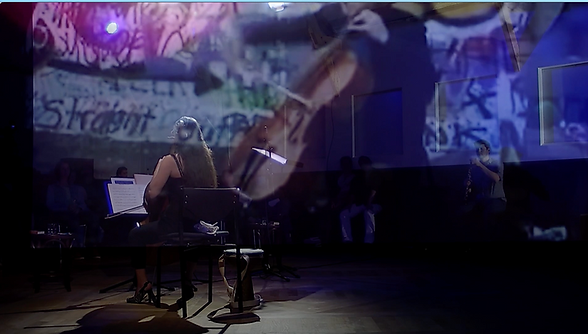
Lift your eyes beyond the wall
Lift your eyes beyond the dangers of today, to the hopes of tomorrow, beyond the freedom merely of this city of Berlin, or your country of Germany, to the advance of freedom everywhere, beyond the wall to the day of peace with justice, beyond yourselves and ourselves to all mankind.
– John F. Kennedy, “Ich bin ein Berliner”, 1963
Dividing countries, splitting cities, breaking up families - the world has been scarred by walls many times over. Putting up walls to rob people from their freedom is one of the worst crimes against humanity. Artists have often tried to let their music carry across borders to convey a message of conciliation in times of conflict and dividedness.
At times when the world holds its breath for a moment - the conflict between North and South Korea, the division of Germany, the war between Israel and Palestine - conciliatory sounds of music seem endlessly distant. However, these are also events that inspire composers. Once the dust begins to settle, their music can gently take the first steps towards rapprochement and peace. How do walls sound? How does hope sound? How does reconciliation sound? Using film fragments and texts - speeches and poems - the soundtracks of a number of conflicts are explored in this programme.
Isang Yun, despite torture and exile, always remained in search bridging North and South Korea; Mstislav Rostropovich played Bach while behind him the Berlin Wall fell; György Ligeti was cut off from his Western colleagues by the iron curtain and his music was censored by the Soviets for years; Israeli-Palestinian composer Samir Odeh-Tamimi writes about the conflict in his homeland(s), but also wants to convey that we should not fear the unknown.
Georgian cellist Ketevan Roinishvili and Dutch oboist Vincent van Wijk come together to explore these stories of connection and show in what ways - however small - these composers have managed to make the world a little less divided.
Vincent van Wijk, oboe
Ketevan Roinishvili, cello
